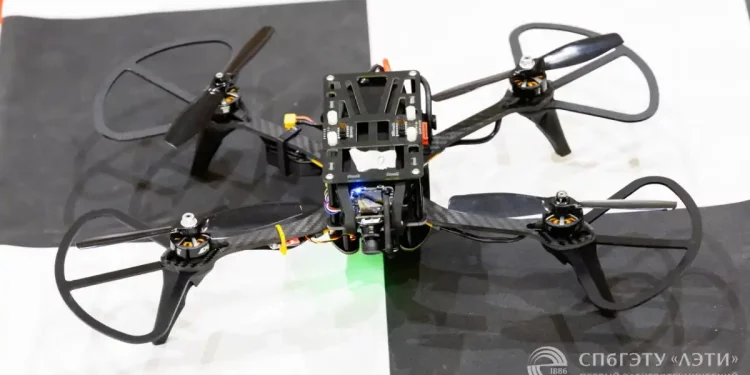Researchers from St. Petersburg Electrotechnical University “LETI” have trained drones to independently navigate in space using computer vision. This was reported on the website of the educational institution.
Today, unmanned aerial vehicles perform a huge number of tasks in various areas of life – from delivering orders and irrigating crops to reconnaissance and diagnostics of high-rise buildings.
One of the problems that arises in connection with the use of drones (especially a group of drones) is to ensure their safety. This is especially true for complex multifunctional drones, damage or loss of which can bring significant economic damage to the owner.
“We have developed software that allows an unmanned aerial vehicle to use computer vision to navigate in space, recognizing the type of terrain that is under it.”
Evgeny Neverov – assistant of the Department of Computer Science (CT) of St. Petersburg Electrotechnical University “LETI”
The development is based on a neural network that was trained on a large amount of information from an open database of video footage of various landscapes.
Thanks to the use of the created software, the drone is able to recognize a variety of types of landscape: water areas, areas with trees and other vegetation, as well as sandy areas, and so on. Based on the analysis of the collected information, the drone can accurately determine its location. The research results are published in the scientific journal Symmetry.
Evgeny Neverov — assistant of the Department of Computer Engineering (CT) of St. Petersburg Electrotechnical University “LETI”Photo: etu.ruEvgeny Neverov – assistant of the Department of Computer Engineering (CT) of St.
“The fundamental importance of our scientific work lies in the development of such an important area today as computer vision for application in various fields. In practice, the development can be used in hybrid mode with other drone tracking systems (such as GPS sensors) to reduce the potential risks of losing relatively expensive drones, which, for example, are used in the agricultural industry.”
Ruslan Gataullin – Junior Researcher, Mobile Intelligent Systems Laboratory, St. Petersburg Electrotechnical University “LETI”
Portuguese scientists took part in the scientific work. The project was carried out by specialists from the laboratory for the development of systems for the group use of ground, water and air UAVs of LETI. Research is carried out under the strategic project “Strong hybrid intelligence technologies for applied medicine” of the development program of St. Petersburg Electrotechnical University “LETI”, which is being implemented as part of the “Priority 2030” program.







